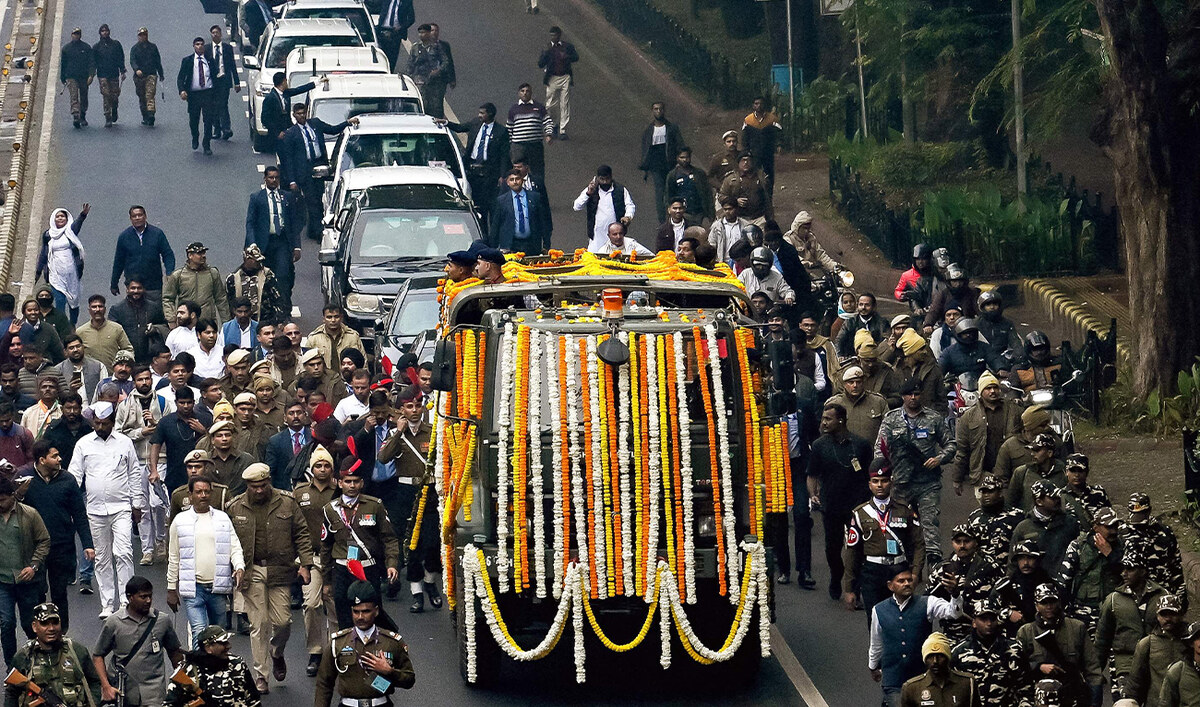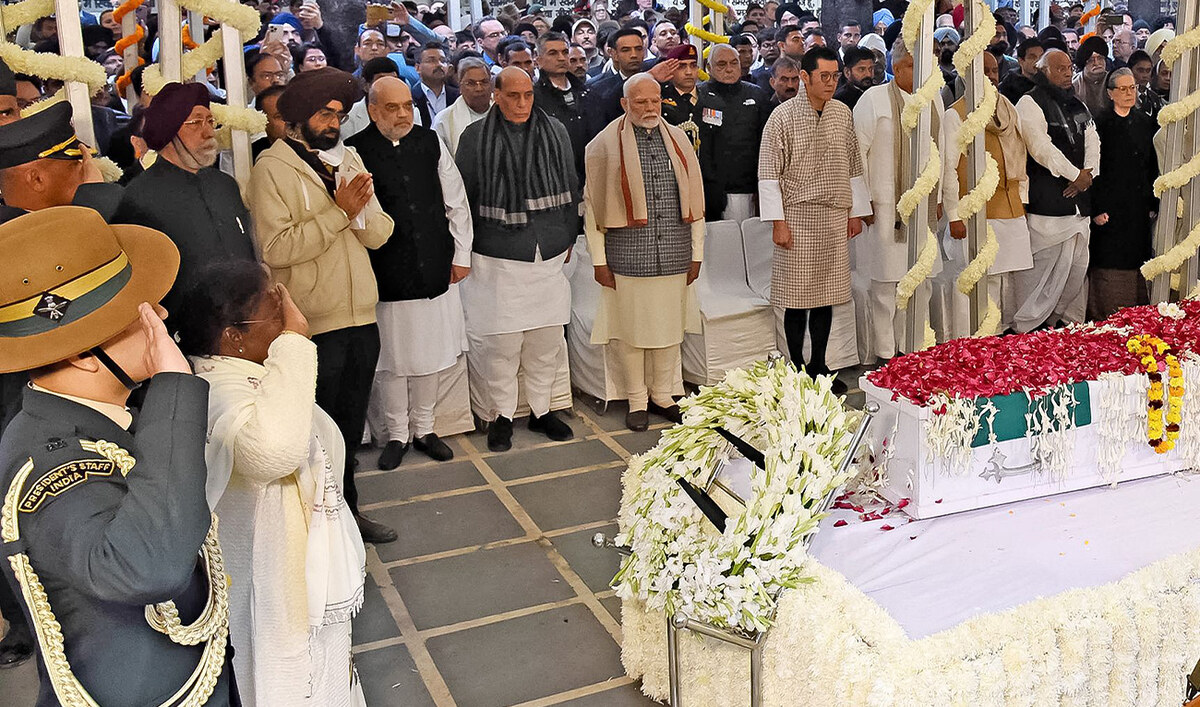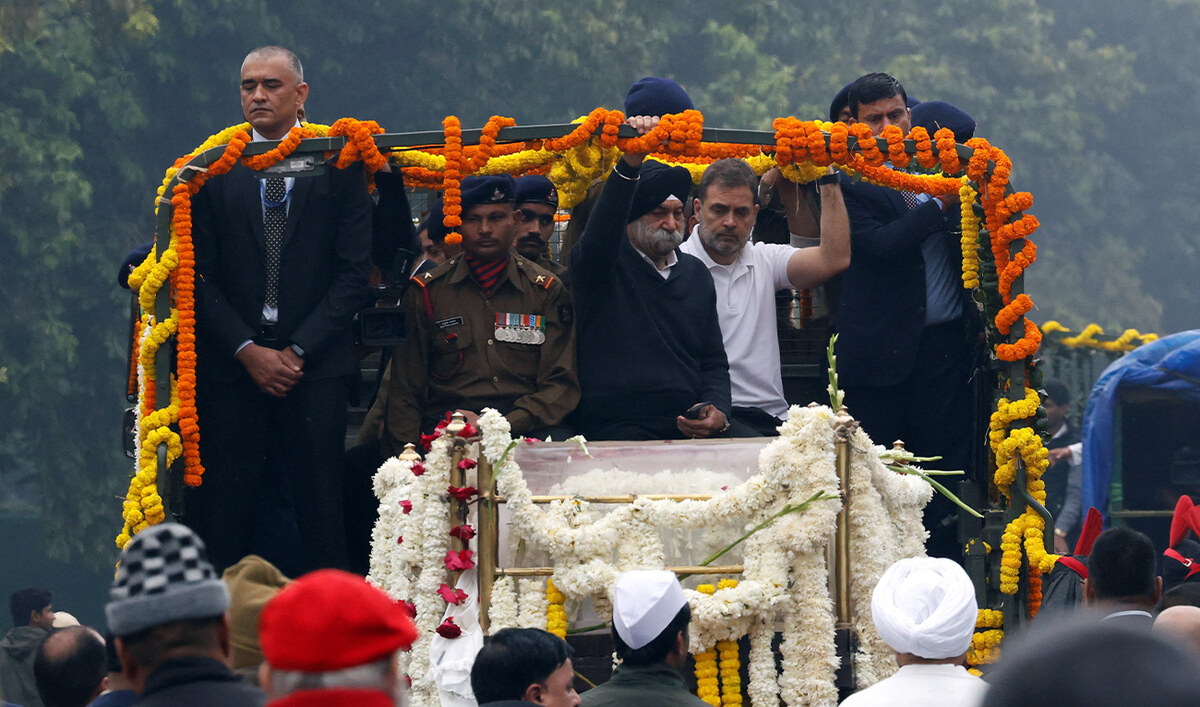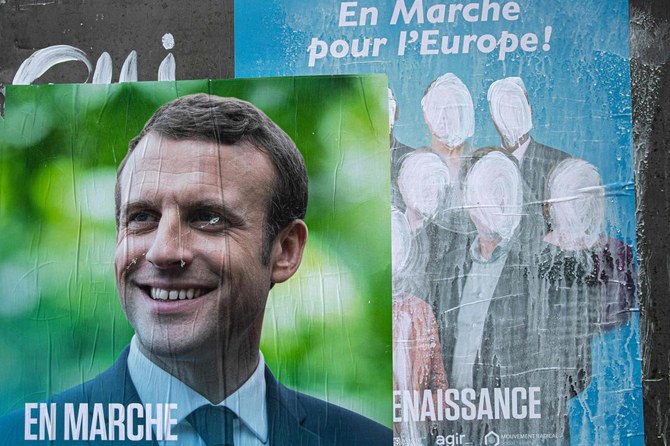PARIS: President Emmanuel Macron this weekend faces a critical test of his ambitions to reform France and champion a liberal Europe in European Parliament elections where his own party risks losing to the far-right.
The latest opinion surveys show the far-right National Rally (RN) outpolling Macron’s centrist Republic on the Move (LREM) by between 0.5-2 percentage points, after months where the two were neck-and-neck.
Analysts say that two years into his five-year term, the EU election represents a critical juncture for Macron and will influence whether the 41-year-old president can continue reforming in what he calls the “second act” of his time in office.
Macron has made no secret of the importance of the polls in France Sunday, telling regional newspapers this week the elections were the most important for four decades as the union faced an “existential threat.”
At stake is the youthful president’s vision of implementing further pro-business reforms in France, while emerging as a champion of more integration among EU member states.
Losing to Marine Le Pen’s RN — formerly known as the National Front — could be a glaring blow to those ambitions.
Sources close to Macron say a bad loss could prompt a major cabinet reshuffle, with the job of Prime Minister Edouard Philippe seen as being on the line.
“Symbolically, losing European elections in his own country would be seen as a repudiation of someone so pro-European,” said Sebastien Maillard, director of the Jacques Delors Institute think-tank.
“What is at stake for Emmanuel Macron is to have an influence in the future European parliament. This is not a given.”
Macron will find it tricky to challenge the dominance of the conservative European People’s Party (EPP) and the Socialists and Democrats (S&D) in the 751-seat parliament.
His European allies, grouped together in the Alliance of Liberals and Democrats for Europe (ALDE), may only end up with some 100 seats.
“If you don’t have a position in the European parliament then your European influence is limited,” said a French presidential official.
“This is what is at stake in the elections in the face of the nationalist risk.”
The elections also come at a prickly time in Macron’s relations with German Chancellor Angela Merkel, who is due to leave office in 2021 but who the French president wanted to cultivate as an ally in reforming Europe.
Merkel is unhappy with Macron challenging the EPP which she backs, while tensions have flared over Brexit, the choice of the next EU commission chief and France’s decision to increase its budget deficit.
“The European political landscape is very fractured, there is no leadership and Macron has not succeeded in imposing his,” said Jean-Thomas Lesueur, political scientist at the Franco-Belgian Thomas More Institute.
After an initial burst of optimism, the “Germans became disenchanted quite quickly,” he said.
The elections come with Macron still shaken after six months of sometimes violent anti-government protests by the “yellow vest” movement which prompted him to announce tax cuts for the working classes and a rise in the minimum wage.
The protests have shrunk in size, but Macron’s popularity ratings remain leaden with the president painfully aware his two predecessors both lasted only one term without leaving any major mark.
Sources said if the LREM falls behind the RN all eyes will be on the margin to determine the magnitude of the reaction.
“If there is nothing in it, behind or in front, I don’t see a reshuffle. But if we are three to four points behind the RN, or below 20 percent, people within the ruling party will start to ask questions,” said a person close to Macron, who asked not to be named.
“And this will require a change in personnel,” the source said.
A minister, also speaking on condition of anonymity, added: “If we are far behind the RN then things are going to shake. There will be a big reshuffle. I don’t see how we can lose the elections” and not change the prime minister.
For Brice Teinturier from the polling institute Ipsos in France, a victory for Macron’s party would give the government some “political oxygen” and capacity to allow reforms to continue.
“But if they are overtaken by the RN — and not just by 0.5 but two percentage points — this will be a failure and the capacity of the government to reform will be something that is merely hypothetical,” he said.
Macron’s ambitions face test in high-stakes EU polls
Macron’s ambitions face test in high-stakes EU polls

- The EU election represents a critical juncture for Emmanuel Macron
- Sources close to Macron say a bad loss could prompt a major cabinet reshuffle
Several airlines cancel flights to Russia after Azerbaijan Airlines crash

- Turkmenistan Airlines was the latest airline to announce cancelations Saturday
- Kazakhstan’s Qazaq Air has suspended its flights to Yekaterinburg until the end of January
Moscow has declined to comment on reports the plane could have been accidentally shot down by its air defense.
Russia has said that Grozny, the Chechen capital where the plane was meant to land, was being attacked by Ukrainian drones that day.
It crashed near the Kazakh city of Aktau Wednesday, killing 38 of the 67 people on board.
Turkmenistan Airlines — the national carrier of the reclusive Central Asian state — was the latest airline to announce cancelations Saturday.
It said that “regular flights between Ashgabat-Moscow-Ashgabat were canceled from 30/12/2024 to 31/01/2025,” without giving an explanation.
The decision came after UAE airline flydubai suspended flights between Dubai and the southern Russian cities of Mineralnye Vody and Sochi that were scheduled between December 27 and January 3.
Kazakhstan’s Qazaq Air has suspended its flights to Russia’s Urals city of Yekaterinburg until the end of January.
Earlier this week, Israeli airline El Al said it was suspending its flights to Moscow for a week.
The Azerbaijan Airlines Embraer 190 crashed near the western Kazakh city of Aktau, on the shores of the Caspian Sea.
It was carrying out a flight between Azerbaijan’s capital Baku and the city of Grozny in Russia.
For several days, some Western experts have been pointing to a crash caused by a Russian anti-aircraft missile.
Citing preliminary results of an investigation, Azerbaijan’s transport minister said Friday that the crash suffered physical “external interference.”
Statements from Azerbaijan citing the investigation into the incident suggest Baku believes the plane was hit mid-air.
On Friday, White House spokesman John Kirby said Washington has “indications” Russia may have been responsible, without giving details.
Cyber attack on Italy's Foreign Ministry, airports claimed by pro-Russian hacker group

- The pro-Russian hacker group Noname057(16) claimed the cyberattack on Telegram
MILAN: Hackers targeted around ten official websites in Italy on Saturday, including the websites of the Foreign Ministry and Milan’s two airports, putting them out of action temporarily, the country’s cybersecurity agency said.
The pro-Russian hacker group Noname057(16) claimed the cyberattack on Telegram, saying Italy’s “Russophobes get a well deserved cyber response.”
A spokesperson for Italy’s cybersecurity agency said it was plausible that the so-called “Distributed Denial of Service” (DDoS) attack could be linked to the pro-Russian group.
In such attacks, hackers attempt to flood a network with unusually high volumes of data traffic in order to paralyze it.
The spokesperson said the agency provided quick assistance to the institutions and firms targeted and that the attack’s impact was “mitigated” in less than two hours.
The cyberattack has not caused any disruptions to flights at Milan’s Linate and Malpensa airports, a spokesperson for SEA, the company which manages them, said.
While the websites were inaccessible, the airports’ mobile apps continued to function, the SEA spokesperson added.
Finland moves tanker suspected of undersea cable damage closer to port

- BBaltic Sea nations have been on high alert after a string of outages of power cables, telecom links and gas pipelines since Russia invaded Ukraine in 2022
OSLO: Finnish authorities said on Saturday they are moving an impounded tanker closer to port after boarding the vessel carrying Russian oil earlier this week on suspicion it had damaged an undersea power line and four telecoms cables.
Baltic Sea nations have been on high alert after a string of outages of power cables, telecom links and gas pipelines since Russia invaded Ukraine in 2022, and NATO said on Friday it would boost its presence in the region.
The Cook Islands-registered ship, named by authorities as the Eagle S, was boarded on Thursday by a Finnish coast guard crew that took command and sailed the vessel to Finnish waters, a coast guard official said.
Finnish police believe the Eagle S may have caused the damage to undersea cables the previous day by dragging its anchor along the seabed.
“The police begin an operation to transfer the Eagle S tanker from the Gulf of Finland to Svartbeck, an inner anchorage near the port of Kilpilahti,” the Helsinki police department said in a statement on Saturday.
This would be a better place to carry out investigations, it added.
Finland’s customs service believes the ship is part of a “shadow fleet” of aging tankers being used to evade sanctions on the sale of Russian oil.
The Kremlin said on Friday Finland’s seizure of the ship was of little concern to it. In the past, Russia has denied involvement in any of the Baltic infrastructure incidents.
France asks Indonesia to transfer national on death row

- Indonesia has in recent weeks released half a dozen high-profile detainees
- French diplomats have acknowledged that talks were underway for the transfer of Serge Atlaoui
JAKARTA: France has sent Indonesia an official request for the transfer of a French death row inmate who has spent nearly 20 years in prison, an Indonesian minister said on Saturday.
Indonesia has in recent weeks released half a dozen high-profile detainees, including a Filipino mum on death row and the last five members of the so-called “Bali Nine” drug ring.
French diplomats have acknowledged that talks were underway for the transfer of Serge Atlaoui, a 61-year-old Frenchman arrested in 2005 at a drugs factory outside the capital Jakarta.
The Indonesian government has now confirmed it received the official transfer request, which will be discussed in early January.
“We have received a formal letter requesting the transfer of Serge Atlaoui,” senior law and human rights minister Yusril Ihza Mahendra said.
The French embassy in Jakarta declined AFP’s request for comment.
Father-of-four Atlaoui has maintained his innocence, claiming that he was installing machinery in what he thought was an acrylics plant.
He was initially sentenced to life in prison, but the Supreme Court in 2007 increased the sentence to death on appeal.
Atlaoui was held on the island of Nusakambangan in Central Java, known as Indonesia’s “Alcatraz,” following the death sentence, but he was transferred to the city of Tangerang, west of Jakarta, in 2015 ahead of his appeal.
That year, he was due to be executed alongside eight other drug offenders but won a temporary reprieve after Paris stepped up pressure, with Indonesian authorities agreeing to let an outstanding appeal run its course.
In the appeal, Atlaoui’s lawyers argued that then-president Joko Widodo did not properly consider his case as he rejected Atlaoui’s plea for clemency — typically a death row convict’s last chance to avoid the firing squad.
The court, however, upheld its previous decision that it did not have the jurisdiction to hear a challenge over the clemency plea.
Atlaoui’s lawyer, Richard Sedillot, said last month that there was still “considerable hope” for a transfer.
Together Against the Death Penalty (ECPM) said the official request is the “penultimate step in a long fight” for those at the Paris-based organization who have campaigned for years to prevent Atlaoui’s execution.
“We are now waiting for this transfer to become a reality,” ECPM director Raphael Chenuil-Hazan said.
Earlier this month, Filipino inmate Mary Jane Veloso tearfully reunited with her family after nearly 15 years on Indonesia’s death row. She was transferred to a women’s prison in Manila where she awaits a hoped-for pardon for her drugs conviction.
Indonesia has some of the world’s toughest drug laws and has executed foreigners in the past.
At least 530 people were on death row in the Southeast Asian nation, mostly for drug-related crimes, according to data from rights group KontraS, citing official figures.
According to Indonesia’s Immigration and Corrections Ministry, more than 90 foreigners were on death row, all on drug charges, as of early November.
Despite ongoing negotiations for prisoner transfers, the Indonesian government recently signaled that it would resume executions — on hiatus since 2016 — of drug convicts on death row.
India’s former PM Manmohan Singh cremated with state honors

- Singh’s body, draped in Indian flag, was carried through the capital on a flower-decked carriage pulled by a ceremonial army truck
- Modi, who called Singh one of the nation’s ‘most distinguished leaders,’ attended the funeral, along with President Droupadi Murmu
NEW DELHI: The body of Manmohan Singh, the former Indian prime minister whose death has spark outpourings of grief at home and accolades from abroad, was cremated on Sunday on the banks of the Yamuna River in New Delhi with full state honors.
The funeral was conducted in the Sikh tradition as priests chanted hymns, after Singh’s body, draped in the Indian flag, was carried through the capital on a flower-decked carriage pulled by a ceremonial army truck.

The flag was removed and the body covered with a saffron cloth before it was placed on the pyre.
Since Singh died on Thursday at 92, many have taken up his comment near the end of his 10-year rule that “history will be kinder to me than the contemporary media.”
He was referring to a perception of weak leadership as he headed a coalition government facing numerous charges of corruption, which was thrown out of office in the 2014 election won by his successor Narendra Modi.
Modi, who called Singh one of the nation’s “most distinguished leaders” after his death, attended the funeral, along with President Droupadi Murmu and representatives of various countries. Modi’s government has decided to allocate land for Singh’s memorial.

Singh, considered the architect of India’s economic liberalization, had criticized Modi’s economic policies such as demonetization and introducing a goods and services tax.
Singh is survived by his wife and three daughters.

Congress Leader Rahul Gandhi accompanied Singh’s family on the truck to the Nigambodh Ghat cremation site after the procession from party headquarters in New Delhi, where people joined Congress party leaders and members to pay their last respects.
The leaders of the US, Canada, France, Sri Lanka, China and Pakistan were among those expressing grief at Singh’s death and highlighting his international contributions.


















